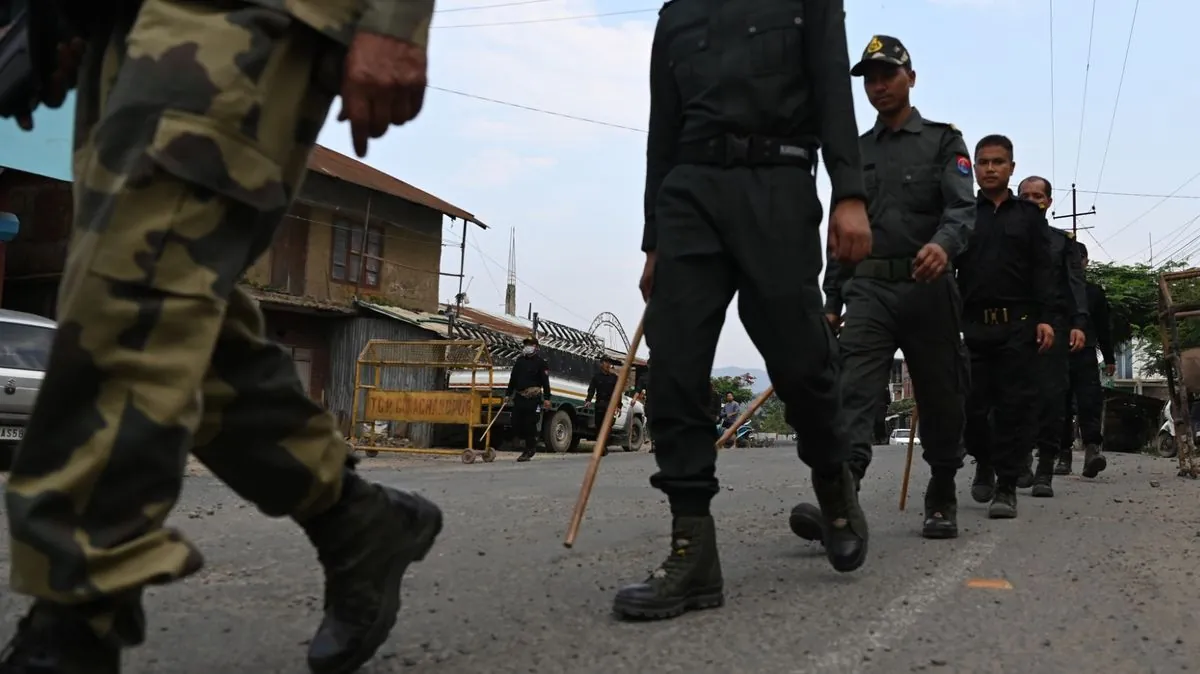Manipur on High Alert: Tensions Rise Amid Alleged Militant Influx
Manipur faces heightened security measures following reports of potential militant influx from Myanmar. Kuki representatives deny allegations, calling for security adviser's resignation amidst ongoing ethnic conflict.

In India's northeastern state of Manipur, tensions have escalated as authorities placed the region on high alert. This decision comes in response to intelligence reports suggesting a potential influx of 900 suspected Kuki militants from neighboring Myanmar.
Kuldiep Singh, Manipur's security adviser, informed reporters that various intelligence agencies had been notified of this information. He stated, "The border police have been alerted, and combing operations are underway." Singh added that hill districts, predominantly inhabited by Kuki tribes, are under heightened vigilance.
However, the Kuki Students' Organisation (KSO), the primary representative body for the Kuki community in Manipur, vehemently denied these allegations. In a statement, the KSO accused Singh of disseminating false information about their community while failing to ensure their safety. The organization expressed their lack of confidence in Singh's leadership and called for his resignation.
This latest development occurs against the backdrop of ongoing ethnic violence in Manipur, which began in May 2023. The conflict primarily involves the majority Meitei and minority Kuki communities, stemming from disputes over economic benefits and quotas. Since the outbreak of violence, at least 237 lives have been lost, and over 60,000 people have been displaced in this state of 3.2 million inhabitants.
Recent incidents have further exacerbated the situation. Reports of attacks involving explosives delivered by drones have surfaced, with officials alleging Kuki militants as the perpetrators. Kuki representatives, however, have denied any involvement of their community members in these attacks. In response, Meitei protesters have organized large gatherings in Imphal, the state capital, demanding action against Kuki militants.
"We demand immediate action to protect our communities from these militant attacks. The government must ensure the safety of all Manipur residents."
The ruling Bharatiya Janata Party (BJP) has consistently attributed the violence to an influx of refugees following Myanmar's 2021 military coup. In response to the ongoing crisis, the government implemented significant policy changes last year. These include revoking a long-standing policy that allowed visa-free movement along the 1,650-km porous border and announcing plans to construct a border fence at an estimated cost of 310 billion rupees ($3.71 billion).
These measures have faced criticism from Kuki groups due to their cross-border ties with the Chin tribe in Myanmar. The ethnic connections between the Kuki people in southern Manipur and the Chin tribe highlight the complex nature of the region's demographics and the challenges in implementing border control measures.
Currently, Manipur remains divided into two distinct ethnic enclaves: a Meitei-controlled valley and Kuki-dominated hills. These areas are separated by a no-man's land, which is under the surveillance of federal paramilitary forces.
As the situation continues to evolve, the international community watches closely, recognizing the potential implications for regional stability and the delicate balance of ethnic relations in this strategically important Indian state.


































